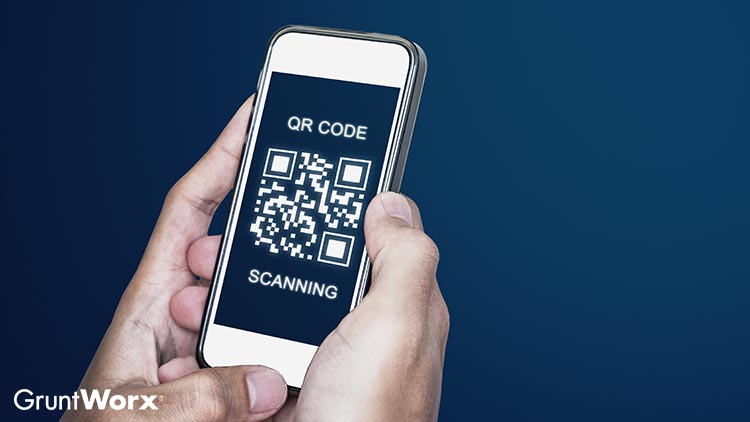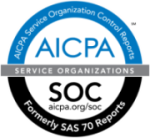
We’re always looking for ideas and technology and that make life more convenient. After all, GruntWorx tax automation products take the tedium out of document organization and data entry. Well, the Internal Revenue Service this month said they’re going to make it easier for anyone with a smartphone to pay tax owed by adding a QR code to CP14 and CP14 IA notices.
What is a QR code?
QR codes are the small, pixelated squares you occasionally see on product packaging, emails, mall standee ads, and even roadside billboards. Companies use these images to help customers quickly visit a web address without having to type URL in a web browser.
To use a QR code, just tap the camera app on your smartphone, center the image on your screen, and—if you’re using an Apple or Android device—click the notification that pops up to open the webpage in your browser. (Depending on your device, you may need to download a QR code reader application to use QR codes—back in my day, you had to use an app!)
As you well know, every additional step a customer has to take before purchasing a product decreases the likelihood that they will actually part with their money. Reducing those steps—and making them easier—makes it much more likely that they’ll buy what you’re selling. That same principle applies to paying bills, so it makes sense that the IRS want to encourage payment of tax owed with convenient tech.
When will the IRS add QR codes to CP14 and CP14 IA notices?
The IRS says they’re already putting QR codes on CP14 notices this year, but the CP14 IA notices won’t have them until 2021. The hyperlink embedded in the IRS QR codes will take taxpayers to IRS.gov, so they can “securely access their account, set up a payment plan, or contact the Taxpayer Advocate Service.”
Another obvious advantage the IRS notes is that these QR codes “will give the taxpayer direct access to information they need on IRS.gov to resolve their account balance online without the need to call or interact with the IRS directly.” Given the possibility for another difficult filing season due to the looming specter of COVID-19, this could help taxpayers get help with simple issues if the phone service experiences longer wait times.
Be careful when scanning QR codes!
“As QR codes become more common, hackers are starting to take advantage of the technology,” explains Suzanne Vanderpool, our Chief Compliance Officer. “You’ve heard of phishing and spear phishing. Now, we have QRphishing: Scanning a malicious QR code can direct users to malicious websites and steal transaction data.”
“Be very vigilant in making sure the QR code is from a trusted source before you scan,” Suzanne continues. “As the threat increases, companies are building QR code scanner apps with built-in security features to prevent malicious activity.”
Remember, convenient doesn’t mean risk-free.
Source:IR-2020-233







